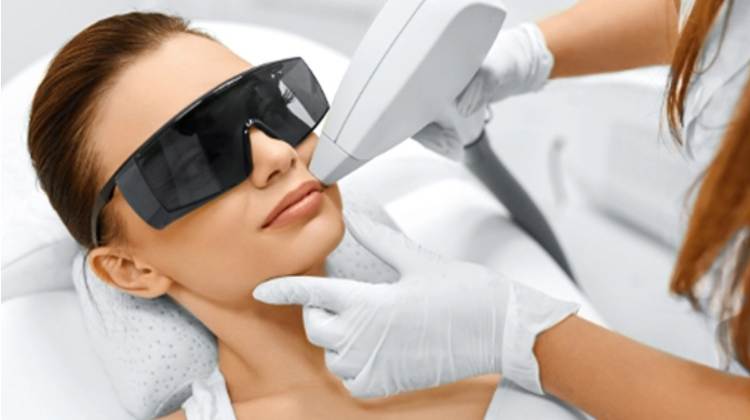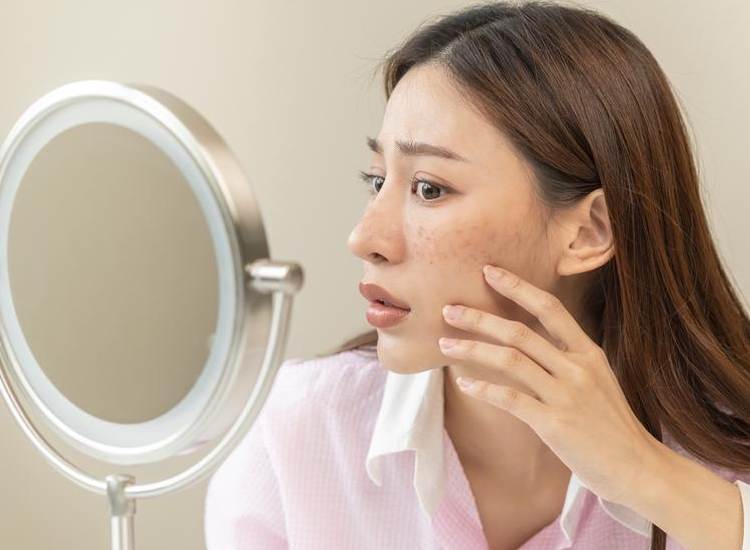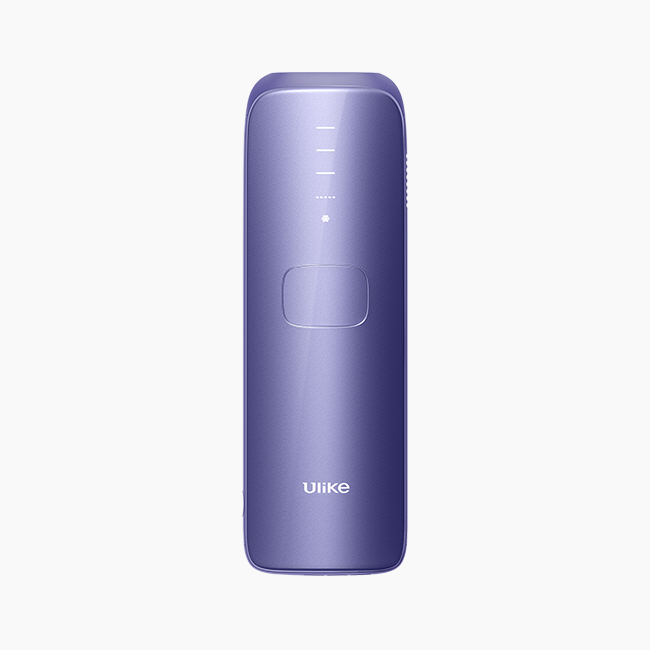
Getting a laser hair removal treatment can leave wonders in the treatment area, including hair-free, smooth, soft, glowing, and sexy skin, but one wrong move of the patient or esthetician can make it worrisome. Hyperpigmentation is one of the common side effects of laser hair removal treatment if executed improperly.
This article is an elaboration of hyperpigmentation, whether it will go away, and if yes, then how. Furthermore, it explains some methods through which a patient can prepare and safeguard themself from hyperpigmentation arising out of laser hair removal treatment.
Table of Contents:
- Part 1: Understanding Hyperpigmentation
- Part 2: Does Hyperpigmentation From Laser Hair Removal Go Away?
- Part 3: How to Treat Hyperpigmentation From Laser Hair Removal?
- Part 4: Ways To Prevent Hyperpigmentation Before Laser Hair Removal Treatment
Part 1: Understanding Hyperpigmentation
Hyperpigmentation is the change in the skin color on the treatment area, typically a darker shade. This worsens the skin’s appearance and causes irritation on the affected area.
Hyperpigmentation can arise due to a patient’s and/or esthetician’s neglect, poor experience, etc. The discoloration happens when the lasers stimulate the skin cells responsible for the skin pigment. This only happens when something goes wrong with the treatment. People classify hyperpigmentation in different types:
Sunspots
Keeping the skin exposed to direct sunlight for long enough to cause it to react with the sunlight causes the skin to darken. Its elevated version is a sunburn. Sunspots can go away on their own but it’s better to treat it with medication or creams.
Post-inflammatory Hyperpigmentation
The skin can darken immediately after the treatment due to inflammation but it should vanish in a few hours or perhaps a few days. It indicates that the skin cells got damaged from excess heat from the lasers.
Onset Hyperpigmentation
When the skin starts healing after the laser hair removal treatment, melanin stimulation can cause hyperpigmentation that arises a few days after the treatment.
Melasma
In this case, the patient notices brown sort of patches on the face that usually occur due to hormonal changes during pregnancy or because of birth control medications.
How Does Laser Hair Removal Treatment Cause Hyperpigmentation?
When the lasers reach the melanin, the light energy converts into heat energy but this heat remains controlled enough to damage only the hair follicles. This is called inflammation. However, sometimes, excess heat can trigger the pigment-producing cells in the skin to produce more melanin, which causes darkened spots on the treatment area.
In another scenario, sometimes the skin starts healing from the harshness during the laser treatment. During the healing process, the treated area can start darkening, which is usually observed in those with darker skin tones.
Part 2: Does Hyperpigmentation From Laser Hair Removal Go Away?
Yes, hyperpigmentation arising due to laser hair removal treatment fades in some time as it’s a temporary skin reaction. In most cases, it fades away automatically in some time, while in severe cases, doctors help vanish the pigmentation through medications. As the skin heals, the pigmentation starts deteriorating and eventually vanishes.
Here’s how the skin heals and hyperpigmentation vanishes:
- Right after the treatment, the skin starts responding to the injuries and the healing process begins.
- While healing, inflammation occurs, which helps in recovering the damaged skin cells.
- The body replaces damaged cells with new cells and the tissue starts regenerating.
- In order to support the tissue, collagen production begins and the tissue structure starts strengthening.
- As the tissue remodeling progresses, the skin’s appearance starts improving.
- Gradually, hyperpigmentation starts vanishing.
- Once the tissue heals, hyperpigmentation fades away completely, and the skin’s appearance is restored.
What Factors Affect The Hyperpigmentation Healing Time?
- Skin tone: Dark skin tones take a longer time to heal from hyperpigmentation than light skin tones.
- Intensity of the lasers: Depending on how deep the lasers reached or how intense the lasers were, hyperpigmentation duration will be impacted.
- Post-treatment care: Careless post-treatment care will increase the healing time, while good nourishment and caring for the affected area will help heal quickly.
- Sun exposure: If the patient exposes their affected area to direct sunlight, even for a short time, then the hyperpigmentation healing process will slow down.
- Skin’s response: Different people’s skin will heal differently, irrespective of their age, gender, skin tone, and hair color. Those with good immunity and great skin health will observe a quicker healing process.
- Skin sensitivity: Sensitive skin is more prone to prolonged hyperpigmentation and the healing process is generally slower for sensitive skin. Extra care and precautions are highly recommended.
- Pre-existing health condition: If the patient is already suffering from certain health conditions like diabetes, skin issues, etc., then expect hyperpigmentation to stay for a longer time.

Part 3: How to Treat Hyperpigmentation From Laser Hair Removal?
Yes, it’s possible to treat hyperpigmentation that comes from laser hair removal. There are topical, natural, and home remedies readily available. But if all of them fail, then professional help will surely cure the problem. This section explains those solutions.
Topical Treatment Options
These topical treatments are generally available over the counter and are effective enough to treat mild hyperpigmentation.
- Hydroquinone: It’s available in the form of a cream or a gel which lightens the skin. This skin lightening agent can block melanin production, thus stopping further hyperpigmentation.
- Kojic acid: Its function is similar to hydroquinone and is sold as a cream, serum, and cleanser. This acid comes from fungi.
- Retinoids: These come in different strengths and formulations, which help the skin to renew and overcome hyperpigmentation.
Professionally Recommended Treatment Options
For severe cases, topical treatments may be ineffective and a doctor may suggest some of these treatments:
- Chemical peels: They’re available as superficial, medium, and deep peels, which act as an exfoliant. Chemical peels help elevate the skin texture to improved levels and overcome hyperpigmentation..
- Microdermabrasion: It’s another exfoliant with the help of crystals or a diamond-tipped wand. The idea is to exfoliate to remove the pigmented skin cells, improve skin texture, and fade away hyperpigmentation.
- Laser therapies: Laser therapies target pigmented skin cells and treat them to remove scars, wrinkles, hyperpigmentation, etc. Some variants include IPL fractional laser, etc.
Natural Remedies & Caring At Home
- Aloe vera gel application on the affected area helps improve skin texture, enhance the skin glow, make it more nourished and moisturized, and in some cases, help overcome hyperpigmentation.
- Turmeric powder mixed with yogurt helps with inflammation and brightens up the skin.
- One can make a natural skin mask using lemon juice and honey. The natural acids found in lemon juice brighten up the skin and applying it on the affected area will make hyperpigmented cells brighten up.
- In order to support the natural healing process and increase the healing speed, one can apply Vitamin E oil, which will also nourish the skin.
- Cut cucumber slices and put them on the affected area to cool it down and hydrate at the same time.
In addition to these natural remedies, the patient should take care at home and follow these tips:
- Apply sunscreen compulsorily, even on cloudy days.
- Always use mild and gentle cleansers to wash the face twice a day.
- Consider using products that contain antioxidants to further support the healing process and make skin feel better.
- Never forget to moisturize.
- Keep irritants away from the face until hyperpigmentation fades.
- In case of skin burning, use a cold compress to cool down the skin and relax the irritation.

Part 4: Ways To Prevent Hyperpigmentation Before Laser Hair Removal Treatment
Avoid Excess Sunlight
Always wear sunscreen, keep the treatment area covered, and avoid direct sunlight when heading to the salon. Excess sunlight will leave harsh effects on the skin, making it vulnerable to further damage during the cosmetic procedure. Using the right sunscreen is a clever idea.
Don’t Use Chemical Products
Certain chemical products like self-tanning products, harsh skincare products, etc., leave a rough and harsh effect on the skin, damaging it at a microscopic level. Such damage to the skin is dangerous right before a laser hair removal treatment.
Be Gentle To The Skin
Always wash the face gently on the treatment day and avoid plucking or waxing when the treatment day is nearing. The use of depilatory creams can worsen the laser treatment. Let the skin relax and stay nourished so that it becomes ready for the upcoming laser treatment.
Assess The Skin
Always keep assessing the skin for any cuts, burns, acne, etc., and treat them with the right medication. Make sure that there are no cuts and wounds on the face on the day of laser treatment. Acne can further complicate the treatment, though.
Conclusion
Hyperpigmentation is indeed temporary and one can cure it at home if mild. For severe cases, doctors have several treatment options. However, with simple yet intelligent tips and the right skincare practices, the patient can avoid hyperpigmentation during their laser hair removal treatment. To choose the right skincare plan, one needs to consider their skin sensitivity and use gentle and trusted products only. If it still seems difficult to manage the skin or if hyperpigmentation seems to be troublesome, never delay contacting a dermatologist.






















